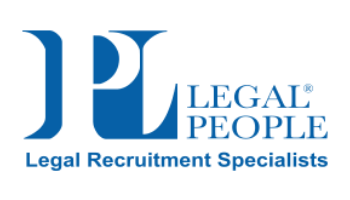In recent years we have seen some of our client base making the transformative shift to offering their staff flexible working arrangements. This change has helped them attract the top available talent in the marketplace.
We are finding that our candidates are seeking flexibility for a myriad of reasons. Whilst some might be related to family responsibilities, others relate to wanting to do further study, or to volunteer and give back to the community. Some are just seeking less than full time hours to improve their work life balance and mental health.
In a candidate tight market, the ability to stand out from the employer crowd has never been more important. Offering flexibility can give you a competitive advantage and mid-tier firms are often leading the charge.
These innovative firms are embracing flexibility to help them engage and retain top talent. They understand that flexibility increases staff productivity. They know it is a helpful factor in becoming an Employer of Choice for Women. Furthermore they are finding that it reduces absenteeism and staff turnover.
Lawyers are known for working long hours and having high stress levels. Maintaining their mental health and family relationships can be a challenge. Premium clients often expect their lawyer to be on call 24/7. This adds up to make the Legal Industry a challenging career choice. In many cases, work-life balance in the past has often been exchanged for moving up the career ladder.
Things are starting to change…..

What Flexible Working Options are Possible?
Across the industry we are seeing clients adopt their own versions of flexible working arrangements. These have included:
- Job Sharing: this is often of interest to lawyers who don’t want to deal with less interesting work that ‘part time’ employment sometimes entails.
- Flexible hours: e.g. early start to avoid the morning traffic
- Flexible working patterns: e.g. Doing a 9 day fortnight, or working 38 hours over 4 days
- Purchased leave opportunities: i.e. taking 48 weeks’ pay a year in order to have an additional 4 weeks’ leave
- Remote or telecommuting options
What is in it for Your Company?
There are many positive outcomes for a firm when it comes to offering flexibility to its workforce. These include:
- Reduced wages bill – pro rata
- Increased productivity
- Increased staff engagement
- Reduced staff turnover
- Appearing attractive to talented potential employees
How Can Your Firm Offer Flexibility to Attract Talent?
Once you have decided to explore the potential for offering flexible working arrangements there can be some obstacles to face to put your ideas into action. In some cases you may need to challenge a culture of staying at your desk until the boss has left for the day.
These are our suggestions to help embed flexible working practices in your firm.
1. Role Model it
Employees can be concerned they are appearing to do less if they are not seen at their desks at all hours of the day or night.
Senior Managers, Partners, Practice Managers all role modelling flexibility can help overcome this perception.
2. Open Communications
It is vital to ensure an employee on flexible arrangements is still client focused. This means that expectations need to be clear from the outset. Your team member needs to understand that sometimes there may be a need to work longer hours. This may be due to a particularly challenging matter or litigation. In all cases flexibility needs to work for both the employee and the firm.
An employee working flexible hours will still understand the need to meet deadlines.
An employee who has flexible working arrangements should make sure their availability is well known to their team and their client base.
3. Leadership
We understand that flexibility also serves up challenges to people leaders. Keeping in touch with a team member who works part of the week remotely or just part of the week can be challenging. Technology has greatly assisted with this challenge via applications like online meetings and workflow. Good two way communication really is the key to flexible working arrangements.
4. Include Potential for Flexibility When Advertising
We encourage clients to include wording such as “part time will be considered” which you can then discuss with the right candidate. Or include the wording “flexible hours” as part of the job description. Offering some flexibility in the working week really can help attract a talented candidate who is frustrated by a lack of flexibility in their current role.
Our clients that have implemented flexibility for their staff are reaping the benefits. The challenges can be overcome. Give it a try!
About Legal People
Legal People is your gateway to the best legal career opportunities and talent. We are specialists in the Legal Industry and recruit Lawyers, Support staff and HR professionals. If you enjoyed reading this article, you can follow our Company Page on LinkedIn for regular updates.



